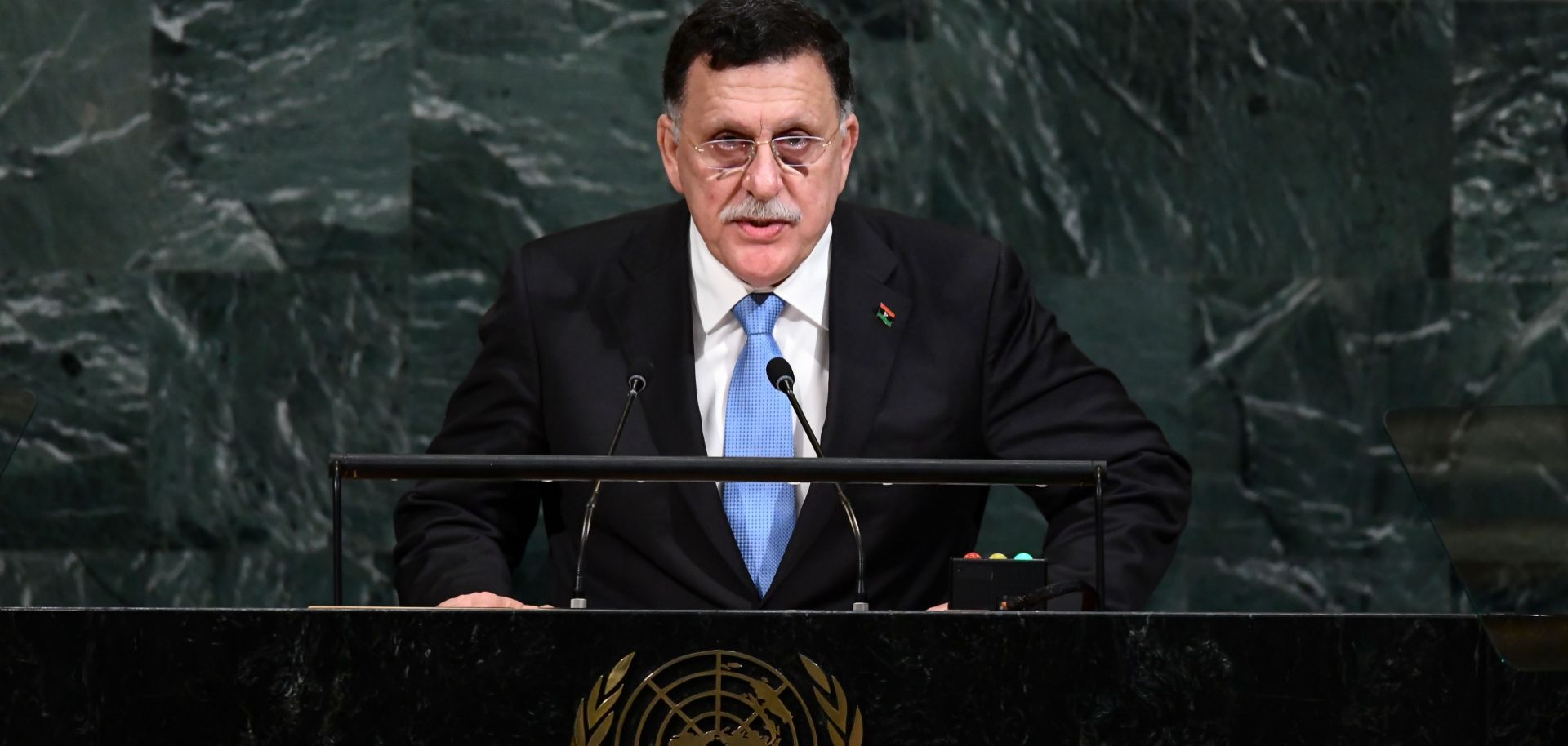ASSESSMENTS
Libya Chases an Elusive Unity
Dec 18, 2018 | 23:04 GMT

The head of Libya's internationally recognized Government of National Accord, Fayez al-Sarraj, addresses the 72nd Session of the U.N. General Assembly in New York on Sept. 20, 2017. Long-anticipated elections could finally set the country down the path of greater unity.
(JEWEL SAMAD/AFP/Getty Images)
Highlights
- Libya is unlikely to resolve its divisions and foster unity anytime soon.
- Militias will not have any incentive to alter the status quo in the country until the balance of power shifts.
- Western countries and Arab neighbors will continue to support Field Marshal Khalifa Hifter as a possibly unity figure, although he remains anathema to many in western Libya.
Subscribe Now
SubscribeAlready have an account?
